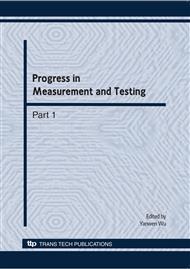p.972
p.979
p.985
p.993
p.997
p.1003
p.1009
p.1015
p.1021
Improvement of Autonomous Learning Abilities of Linguistic Learners Based on Information Technology
Abstract:
Autonomous learning abilities plays an important roles in linguistic learning course. Nowadays, with development of modern information technology and teaching reform in universities, improvement of autonomous learning abilities becomes more and more important for linguistic learners. It is teachers' responsibilities to improve autonomous learning abilities of students with a large variety of measures and strategies. Therefore, the author puts her efforts on studying teaching measures and strategies for improving teaching efficiencies. How do teachers make his or her measures be scientific and effective How do teaching measures stimulate students and promote students How do students turn their learning into autonomous learning All of those questions should be probed by researchers and teachers. In the paper, the author tries her best to solve those problems and tries to find out effective teaching strategies for improvement teaching efficiencies.
Info:
Periodical:
Pages:
997-1002
Citation:
Online since:
May 2010
Authors:
Price:
Сopyright:
© 2010 Trans Tech Publications Ltd. All Rights Reserved
Share:
Citation:


